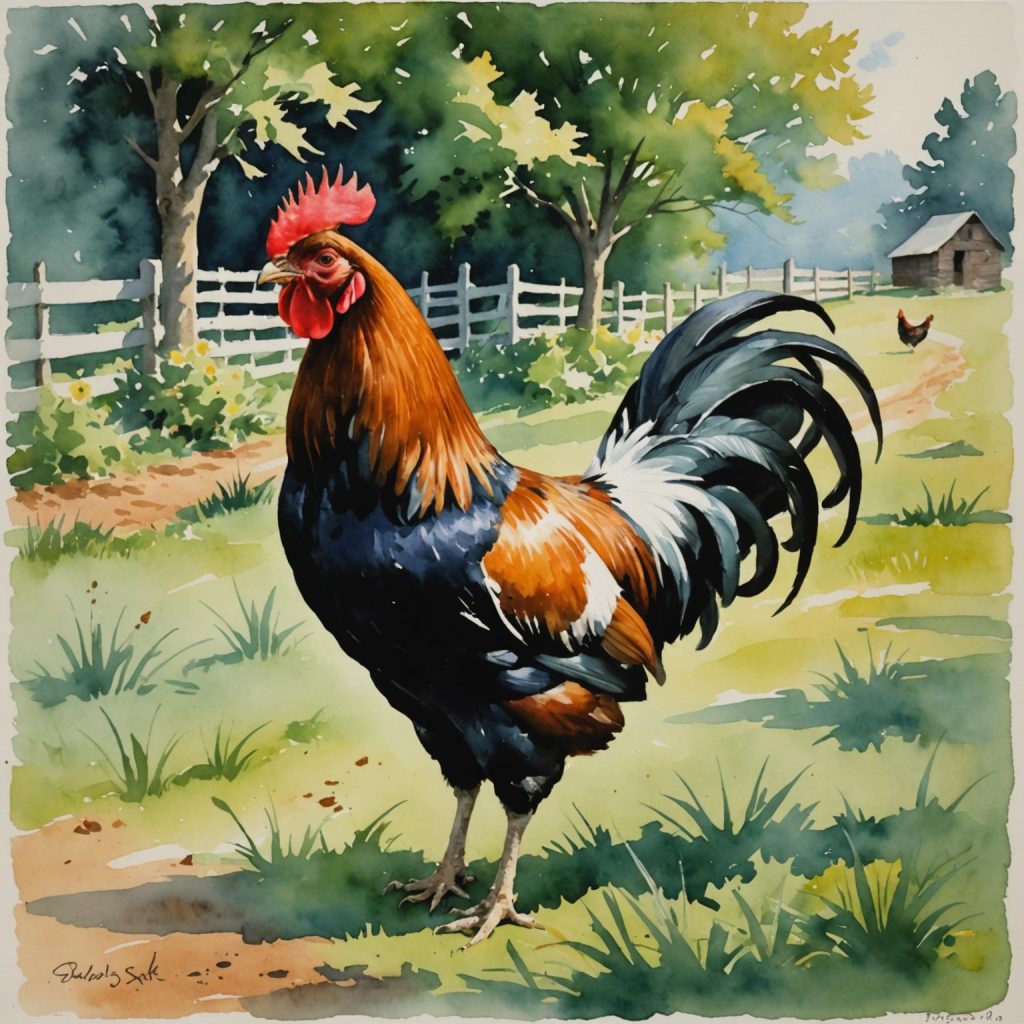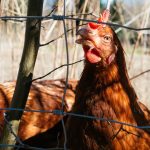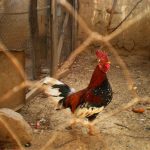Chickens are social animals that thrive in a flock environment. They have a natural pecking order, with dominant and submissive individuals. Understanding their behavior is crucial for creating a harmonious and stress-free environment for your chickens. Chickens communicate through body language, vocalizations, and pecking. It’s important to observe their behavior and learn to interpret their signals. For example, raised feathers and loud clucking may indicate distress or agitation, while relaxed body language and gentle clucking signify contentment. By understanding their behavior, you can better meet their needs and ensure their well-being.
Chickens also have natural instincts for foraging, dust bathing, and roosting. Providing opportunities for these behaviors is essential for their physical and mental health. Foraging helps chickens fulfill their natural instinct to search for food, while dust bathing helps them maintain healthy feathers and skin. Roosting is a natural behavior that allows chickens to rest and feel secure. Understanding and accommodating these natural behaviors will help create a more enriching environment for your chickens.
Table of Contents
Creating a Secure Enclosure:
Creating a secure enclosure is essential for keeping your chickens safe from predators and providing them with a comfortable living space. The enclosure should be well-constructed with sturdy fencing to prevent predators from gaining access. It’s important to bury the fencing underground to prevent digging predators from entering the enclosure. Additionally, the enclosure should have a secure roof to prevent aerial predators from swooping in. Providing adequate shelter within the enclosure is also important to protect the chickens from the elements.
The size of the enclosure is also crucial for the well-being of the chickens. It should provide enough space for the chickens to move around freely, forage, and engage in natural behaviors. Overcrowding can lead to stress, aggression, and health issues, so it’s important to provide ample space for the flock. Creating a secure enclosure not only protects the chickens from harm but also provides them with a safe and comfortable environment to thrive.
Clipping Wings:
Clipping the wings of your chickens can help prevent them from flying over fences and escaping from the enclosure. This is a simple and painless procedure that involves trimming the primary flight feathers on one wing, which disrupts their balance and prevents them from achieving lift when they attempt to fly. It’s important to note that wing clipping should be done carefully and sparingly, as it can affect the chicken’s ability to escape from predators or roost in high places.
When clipping wings, it’s important to use sharp scissors and only trim the primary flight feathers, leaving the secondary feathers intact. This allows the chickens to glide safely to the ground if they do attempt to fly. It’s also important to monitor the regrowth of the feathers and re-clip as needed. Wing clipping should be done with caution and only when necessary, as it can affect the chicken’s natural behaviors and ability to escape danger.
Providing Enrichment:
Providing enrichment for your chickens is essential for their physical and mental well-being. Enrichment activities can include providing opportunities for foraging, dust bathing, and roosting, as well as introducing novel objects and experiences into their environment. Foraging can be encouraged by scattering food around the enclosure or using puzzle feeders to stimulate their natural instinct to search for food. Dust bathing areas can be created by providing a shallow container filled with fine sand or dust for the chickens to roll around in.
Introducing novel objects such as perches, hanging toys, or mirrors can also provide mental stimulation for the chickens. These objects can encourage natural behaviors such as pecking, exploring, and social interaction. Rotating enrichment activities and objects can prevent boredom and improve the overall well-being of the flock. Providing enrichment for your chickens not only keeps them physically active but also stimulates their minds and prevents behavioral issues associated with boredom.
Regularly Checking Fencing and Enclosures:
Regularly checking the fencing and enclosures is crucial for maintaining a secure environment for your chickens. Over time, wear and tear can compromise the integrity of the fencing, making it easier for predators to gain access. It’s important to inspect the fencing for any signs of damage or weakness, such as holes, rust, or loose wires. Any issues should be promptly repaired to prevent potential breaches.
In addition to checking the fencing, it’s important to inspect the overall condition of the enclosure, including the roof, doors, and shelter. Ensuring that all components are in good repair will help prevent escapes and protect the chickens from harm. Regular maintenance of the fencing and enclosures is essential for providing a safe and secure environment for your flock.
Training and socializing your chickens can help create a more manageable and enjoyable experience for both you and your flock. Chickens can be trained to respond to cues such as coming when called or entering their coop at night. Positive reinforcement techniques such as treats or praise can be used to encourage desired behaviors. Socializing your chickens involves spending time with them, handling them gently, and allowing them to become accustomed to human interaction.
By training and socializing your chickens, you can build trust and create a more cooperative relationship with them. This can make it easier to handle them for health checks or veterinary care, as well as make them more responsive to training cues. Training and socializing your chickens not only benefits you as their caretaker but also improves their overall welfare by reducing stress and fear associated with human interaction.
Seeking Professional Advice:
Seeking professional advice from experienced poultry keepers or veterinarians can provide valuable guidance on caring for your chickens. Professionals can offer advice on topics such as nutrition, health care, behavior management, and environmental enrichment. They can also provide recommendations for addressing specific issues such as predator control or flock management.
In addition to seeking advice from professionals, joining local poultry clubs or online forums can provide access to a wealth of knowledge and support from other chicken keepers. Networking with other enthusiasts can offer valuable insights and resources for caring for your flock. Seeking professional advice and connecting with other poultry keepers can help you stay informed and make informed decisions about the care of your chickens.
In conclusion, understanding chicken behavior, creating a secure enclosure, clipping wings when necessary, providing enrichment, regularly checking fencing and enclosures, training and socializing your chickens, and seeking professional advice are all important aspects of responsible chicken care. By prioritizing these elements, you can ensure the well-being of your flock and create a harmonious environment for both you and your chickens. With proper care and attention, your chickens can thrive and bring joy to your life as well.
Meet Walter, the feathered-friend fanatic of Florida! Nestled in the sunshine state, Walter struts through life with his feathered companions, clucking his way to happiness. With a coop that’s fancier than a five-star hotel, he’s the Don Juan of the chicken world. When he’s not teaching his hens to do the cha-cha, you’ll find him in a heated debate with his prized rooster, Sir Clucks-a-Lot. Walter’s poultry passion is no yolk; he’s the sunny-side-up guy you never knew you needed in your flock of friends!







